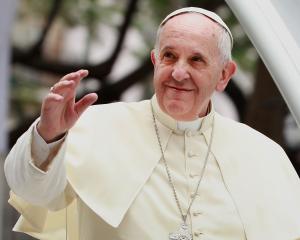Here is an essential service, supplied by the government-owned Airways Corporation, that did not deliver.
That failure not only inconvenienced 237 passengers and many of their friends and relatives, but also trashed the reputation of the airport and the city.
What it clearly says is that Dunedin is a backwater, a country town where you can expect such disruptions.
Dunedin and its airport are not significant enough to have the basics covered.
As Mr McCall says, it is hard to imagine the same situation being allowed to develop in Auckland, Wellington or Christchurch.
Six air traffic controllers work at the airport on sole shifts, and the Airways Corporation was unable to find someone to do the job after one called in sick.
Air traffic controllers from other airports could not be brought in because controllers had site-specific licences.
The incident had been, it was claimed, "regrettable but unavoidable".
These excuses are far from good enough.
If a system falls down because one person is sick, then obviously it is inadequate.
Surely, there should be sufficient flexibility to cover such illness.
Surely, the Airways Corporation can do better than that.
And, surely, the failing was avoidable.
It transpires that a former Dunedin traffic controller working at Christchurch airport was subsequently transferred to Dunedin to relieve for three days while the sick controller recovered.
He had been working in Christchurch on Thursday, the day of the debacle, so could not be brought south sooner.
But had too many of the Dunedin controllers been given leave at once so that the absence of one caused such difficulties? Should there not be some interchange with Christchurch so that, say, two or three controllers there could cover for Dunedin? Are the generous holiday allowances, other provisions of the controllers' collective and the requirements for two shifts every day so onerous?
These are the types of questions that Dunedin airport and the Dunedin public should not have to ask but for which the Airways Corporation should have had the answer. Its job is to manage the rosters and the cover, and it let the airport and Dunedin down.
Assurances from the corporation for the future will be treated with scepticism.
It was only four years ago that two evening flights were delayed because a controller was sick, and in 2004 one flight was delayed because of the late arrival of a controller.
In those days, Dunedin had only four controllers.
This increased to five in 2006, and to six in the past year.
Yet, despite six controllers, this last disruption was worse.
Some passengers chose not to board the diverted flights from Auckland and Wellington.
Others on the last flight did not arrive in Dunedin until about 1.15am or 1.30am.
Dunedin airport has suffered in the past 18 months with the reduction in Air New Zealand frequency and capacity to Australia.
The loss of consistent flights to Sydney is an especially significant blow.
The grounding of Air New Zealand's budget airline, Freedom, and the vigorous competition and cheaper flights from Christchurch slowed the airport's upward trajectory.
Together with the controller fiasco, the "international" in the airport name is looking rather overblown.
Fortunately, the advent from last September of Pacific Blue's three flights a week to Brisbane and the continued growth of domestic travel, again helped by Pacific Blue's arrival, have underpinned the airport business.
Passenger numbers increased from 704,000 in 2006 to 770,000 in 2009.
Domestic numbers rose from 614,000 to 720,000 and international passenger figures fell from 90,000 to 50,000.
As domestic flying continues to grow and as overseas travel rebuilds, last Thursday's disruption was most unfortunate.
The last thing the airport now needs is a repeat of that disruption and further damage to its, and the city's, reputation.












